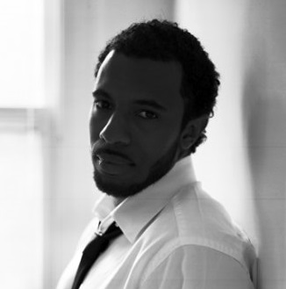
Poet Reginald Dwayne Betts, who founded the Youngmanread book club for black children in Washington, DC, in 2006. (Photo by Marvin Joseph/The Washington Post/Getty Images)
Poet and literature professor Kyle Dargan appeared on Moyers & Company in 2013, and in April of this year helped us celebrate National Poetry Month by interviewing and highlighting the work of five new practitioners of “civic poetry,” individuals whose poetry, Dargan wrote, “seeks to draw us from out of ourselves and affirm the individuals we are as whole and worthy.”
Recently, Kyle Dargan sent to us a New York Times opinion piece by Bari Weiss about one of those extraordinary poets, Reginald Dwayne Betts, who earlier this month was denied entry to the Connecticut bar because of a felony conviction more than 20 years ago. We asked Dargan for his thoughts.
One of the unexpected outcomes of my appearance as a guest on Moyers & Company was a flood of responses from people who watched the show — people I did not know, though they knew where to find me at American University. I had to set up a separate email folder for them, as I was determined to respond to them all. Some even mailed physical letters, and a good portion of that mail came from incarcerated individuals — some sharing stories of their cases, others simply offering notes of thanks or even poems.
I am not much one for defining a poet’s “duty,” but I will suggest that when a poet sees another poet on the creative path, one can offer the other guidance in the form of work by other writers. So when the incarcerated writers reached out to me, I tried to send one of them a book by an artistic associate and friend — Reginald Dwayne Betts. His book, Shahid Reads His Own Palm, is an expression of survival through growth (or growth through survival) inside America’s prison system — a gauntlet Reginald Dwayne Betts experienced for eight years himself as the result of a teenage felony conviction.
I met Betts in DC right after that phase of his life — we are the same age, and I have only known him as fellow poet, scholar and father. I’ve watched the pace at which he has lived his life following his incarceration, and have had no better illustration of how the human mind — in comparison to the body — is so unwilling to concede lost time. Rather than advice or encouraging clichés, Betts’ voice is what I felt might best serve the incarcerated poets who were writing to me.
In a few weeks, that correction facility in the northeast sent the book back to me, claiming the incarcerated individual who wrote me could not have Mr. Betts’ book because it was considered a danger, a security threat. (Again, this book is a book of poems.)
When Mr. Betts was recently denied admission to the Connecticut bar — being judged as apparently having failed, despite his life since prison, to firmly prove “good moral character and/or fitness to practice law” — many were shocked. I was not. That could be attributed to a wealth of experiences I’ve had growing up as someone of African descent in America and some with incarcerated family members, but, more specifically, it was because I have on my bookshelf a collection of poem by Mr. Betts that an American correctional facility refused to forward to an inmate — a physical representation of resistance to two men’s transformation.
I can’t think about that without losing faith in the idea of not only correctional facilities but also the legal system which populates them. It is tolerable for people like Dwayne Betts to be mere characters in stories of reform, but should they attempt to gain agency within or influence over the realms in which such narratives play out, they must be scrutinized excessively, if not thwarted.
I have attentively watched Mr. Betts’ professional life develop — from his English degree and creative writing MFA to his Harvard Radcliffe Fellowship to his juris doctorate and Ph.D in law. He once said in a New Yorker profile that poetry and law have always been intertwined in his mind, but I have always wondered if he would keep writing poems, if the legal world would consume his creative mind. But thankfully, every few years, he releases a book.
Betts’ voice is so necessary to me for it speaks the truth about redemption stories, which is that there is no full redemption for people such as him. It’s actually not a “feel good” story. One is never fully in the clear — ever either dodging the sorrow over the lives one had to leave behind or bounding the hurdles of validation erected constantly, unexpected and often in spite. That he carries this complicated weight and manages to forge art out of some of it makes him a great citizen poet and, I imagine, a compassionate and effective aspiring public defender.
This is not a sidelong appeal to the Connecticut Bar Examining Committee — the onus is on that body to realize its dilemma of principle and not on others to plead on behalf of Mr. Betts’ worthiness to practice law. It is an appeal to you, though — as readers and thinkers and neighbors — to find Dwayne Betts’ writing and share it with those you think may find in it validation and strength.




